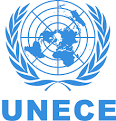The days of voluntary measures to improve sustainability in the garment and footwear sector appear to be numbered, according to speakers at a recent event. With regulation and smart policy implementation, the sector has the potential to build back better post-COVID-19, prioritising the environment and improvements to employment standards for sector workers with a UN-developed plan of action.
Cohesive policy making and collaborative action are essential if real improvements are to be attained, according to speakers at an event organised by UNECE with the ITC and the European Commission on 1 February.
“Voluntary initiatives have proved to be insufficient to move the process forward, it is high time for governments, regulators and policy makers to come in,” said Maria Teresa Pisani, team leader of the traceability initiative at the UN’s Economic Commission for Europe, which has developed a series of recommendations, standards and guidance. “For policy makers, for governments, we have policy recommendations that include a set of five key measures that have to be put into place to advance traceability and transparency.”
Over 260 participants tuned in for the online event, which brought together industry insiders, policy makers and representatives from the European Commission and United Nations. The event, ‘Decent Work, Transparency and Traceability in the garment sector: emerging stronger from the COVID-19 crisis’ was part of the OECD Due Diligence Forum for the Garment and Footwear Sector, a week-long schedule of debate and exchange on cleaning up and improving due diligence, work conditions and human rights in the sector.
The garment and footwear industry is a resource-intensive sector with important climate and environmental impacts. Textile consumption is the fourth highest pressure category in the EU in terms of use of primary raw materials and water (after food, housing and transport), and fifth for GHG emissions, according to the European Environmental Agency. Abuses and exploitation of workers, many of whom are women in developing or least developed countries, is also a major problem in a sector where a complex international web of factories and suppliers makes it difficult for companies to keep oversight of their value chain.
CONTINUE READING ON unece.org



